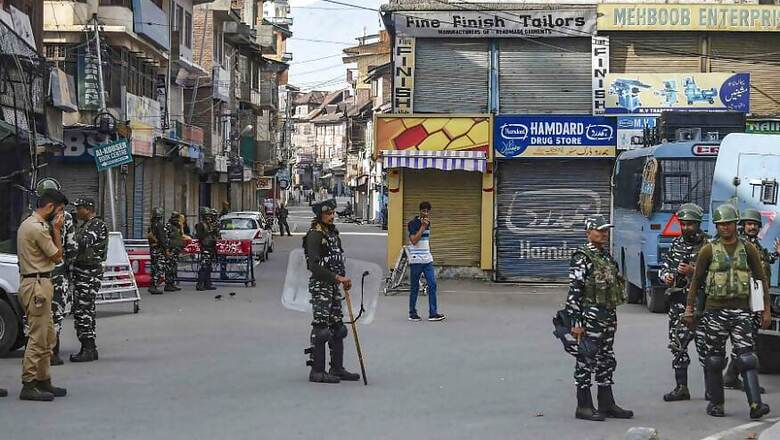
views
New Delhi: Indian-American Democrat lawmaker Pramila Jayapal has introduced a bipartisan resolution in the US House of Representatives asking India to end the communication blockade and mass detentions in Jammu and Kashmir it imposed after ending the region’s special status on August 5.
Resolution number 745, introduced by Jayapal along with Republican lawmaker Steve Watkins, while acknowledging the challenges New Delhi faces from cross-border terrorism, urges India "to end the restrictions on communications and mass detentions in Jammu and Kashmir as swiftly as possible and preserve religious freedom for all residents."
Union Home Minister Amit Shah had earlier said that normalcy has returned in most areas of Kashmir even as the detention politicians, including three former chief ministers, and the blockade of the internet and social media has entered the fourth month in the Valley.
While postpaid cellular services and landline phones have been restored in the region, the ban on more than 2 million prepaid mobile connections and internet services continues because of security reasons as authorities say they fear threat from militants and terrorists from across the border.
The resolution in the US, which will be put to vote in the house, says: "...Urges the Government of India to lift the remaining restrictions on communication and to restore internet access across all of Jammu and Kashmir as swiftly as possible; swiftly release arbitrarily detained people in Jammu and Kashmir; refrain from conditioning the release of detained people on their willingness to sign bonds prohibiting any political activities and speeches; allow international human rights observers and journalists to access Jammu and Kashmir and operate freely throughout India, without threats, and condemn, at the highest levels, all religiously motivated violence, including that violence which targets against religious minorities."
The Indian government must quickly lift restrictions on cell phones and internet access, release arbitrarily detained people, protect free speech and peaceful protest, and condemn all religiously motivated violence at the highest levels across India.— Rep. Pramila Jayapal (@RepJayapal) December 8, 2019
In the past few months, some detained leaders have been freed but the released leaders have had to sign a bond that forbids them from making any comments, issuing statements, giving public speeches or participating in any public event "related to the recent events in the state of Jammu and Kashmir" for one year. The bond states that any public statements by leaders have the "potential to endanger the peace and tranquility and law and order in the state".
The US House of Representatives said that while "recognises the dire security challenges faced by the Government and India in Jammu and Kashmir and the continuing threat of state-supported cross-border terrorism", which India has been battling for decades, the lawmakers reject the “arbitrary detention, use of excessive force against civilians, and suppression of peaceful expression of dissent as proportional responses to security challenges.”
Both Democratic and Republican lawmakers have expressed concern about human rights in Kashmir in recent months. Earlier in October, Democratic Senator Chris van Hollen of Maryland said that he and other members of a US delegation to India were blocked by government from visiting Kashmir. In the statement, Wells also said that direct dialogue between India and Pakistan held the most potential for reducing regional tensions.
There have been two US Congress hearings on Jammu and Kashmir so far.
In October, India said it is regrettable that a few US lawmakers used a Congressional hearing to question measures to protect the lives of people in Jammu and Kashmir. "It is regrettable that a few members of the US Congress used the Congressional hearing on human rights in South Asia to question the measures taken recently to safeguard life, peace and security in Kashmir," Foreign Ministry spokesperson Raveesh Kumar had said.
The government stripped the region of its semi-autonomous powers, downsized the state into two union territories and implemented a strict clampdown on August 5. It sent tens of thousands of extra troops to the region and detained thousands of people.




















Comments
0 comment